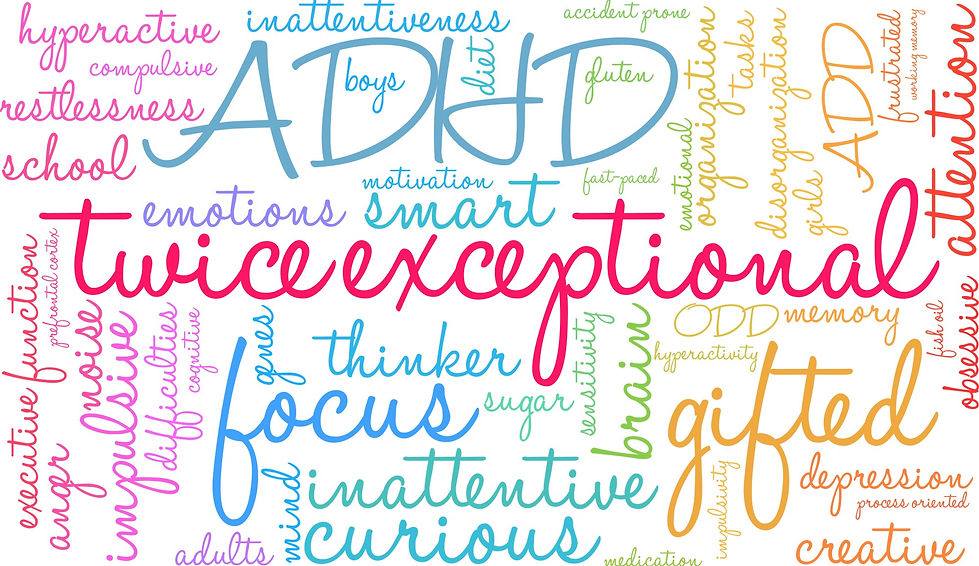
GIFTED ASSESSMENTS
Intellectual giftedness is characterized by exceptional cognitive abilities and is typically identified through standardized intelligence assessments. These assessments measure various aspects of cognitive functioning, including processing speed, verbal and nonverbal reasoning, knowledge acquisition, working memory, quantitative reasoning, visual-spatial skills, and abstract thinking.
Within the Canadian school-aged population, giftedness is estimated to occur in approximately 2-5% of students. It is important to note that giftedness is not a psychological diagnosis, but rather a descriptive term used to identify individuals with exceptional intellectual abilities and potential.
At Constellation Psychology, our experienced psychologists specialize in assessing giftedness to help you better understand your child's unique abilities. We proudly offer gifted assessment for children and teens in Calgary and surrounding areas. We use standardized intelligence measures at our clinic, including the Wechsler Preschool & Primary Scale of Intelligence™ (WPPSI-IV) for children under six years of age and the Wechsler Intelligence Scale for Children® – Fifth Edition (WISC-V) for older children and teens.
IDENTIFICATION & CHARACTERISTICS
An Intelligence Quotient (IQ) score of 130 or above (98th percentile), is commonly recognized as a benchmark for giftedness. Gifted assessments are required for admission to specialized programs such as Westmount Charter School and the Gifted and Talented Education Program (GATE) offered by the Calgary Board of Education (CBE). Other schools that may provide support for gifted learners include private institutions such as Rundle College, Master’s Academy, and Renert School. Gifted identification criteria and procedures vary between programs and some may incorporate a ±5 IQ point range to account for measurement error in assessment scores.
Alberta Education defines giftedness as “exceptional potential and/or performance across a wide range of abilities in one or more of the following areas: general intellect, specific academia, creative thinking, social, music, art, and kinesthesia."
Common intellectual characteristics of students who are gifted include:
Students who may be more at risk emotionally, socially and academically include:

CHALLENGES
Many gifted students require differentiated programming and support to meet their exceptional learning needs. Gifted students also experience typical developmental issues faced by all students. These issues may be complicated by the exceptional learning needs and characteristics many gifted students demonstrate, particularly during adolescence. Gifted students may face various challenges, including perfectionism, underachievement, uneven or asynchronous development, and learning difficulties.
For some gifted students, characteristics like difficulties with peer relationships, risk aversion, or self-criticism can pose challenges. For twice-exceptional learners or "2e learners", who are gifted but also have conditions like ADHD or learning disabilities, these issues can be even more complex, requiring tailored support to nurture both their strengths and areas of need. If you suspect your child is twice exceptional, a comprehensive psychoeducational assessment may be appropriate.
PERFECTIONISM
Perfectionism can be thought of as part of the experience of being gifted, which can be used in a positive way to achieve excellence.
Perfectionism is a pattern of characteristics and behaviours that includes compulsiveness about work habits, over concern for details, unrealistically high standards and rigid routines.
It can develop at various stages of development for various reasons, but for many, it is simply a part of their personality, not necessarily the result of parental pressure or outside influence.

WESTMOUNT CHARTER SCHOOL
A gifted assessment for Westmount Charter School can begin as early as 3.5 years of age for Kindergarten admission consideration. To be identified as gifted, students must have been assessed with a Full Scale IQ (FSIQ) and/or General Ability Index (GAI) score at or above the 98th percentile (standard score 130 ± 5) on an individually administered intelligence test, resulting in a minimum score of 125. For additional information about admission, visit the Westmount Charter School website.
A gifted assessment with only a cognitive measure costs $1,150.00 and involves a two-hour appointment that consists of:
As part of a project, Westmount is requesting for voluntary inclusion of three extra WISC-V subtests—Comprehension, Information, and Arithmetic—to obtain the Verbal Expanded Crystallized Index (VECI) and Expanded General Ability Index (EGAI) using U.S. norms. Both indices are recommended by the National Association of Gifted Children (NAGC) for gifted program selection. This optional add-on costs $115.00, and there is no advantage or disadvantage to including these scores.
*Please note: If your child’s results are not gifted, you have the option of not paying for a report or attending the final meeting. results will be communicated over the phone and/or by email at a reduced assessment rate of $690.00.


GIFTED AND TALENTED EDUCATION PROGRAM (GATE)
The Calgary Board of Education GATE program requires a cognitive assessment demonstrating an FSIQ or GAI score of at least 130. Additionally, applicants must complete an academic skills assessment to measure their strengths in reading, math, and written expression. The program starts at grade four and continues through grade 12. For additional information about the program, visit the Calgary Board of Education website.
A gifted assessment with a cognitive and academic measure costs $1,840.00 and consists of:
A 30-minute consultation with parents to discuss background information and to obtain consent for the assessment.
Two 2-hour assessment sessions to administer an intellectual assessment (WPPSI-IV, WISC-V) and achievement test (WIAT-4).
*Please note: If your child’s results are not gifted, you have the option of not paying for a report or attending the final meeting. results will be communicated over the phone and/or by email at a reduced assessment rate of $690.00.
